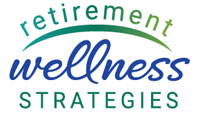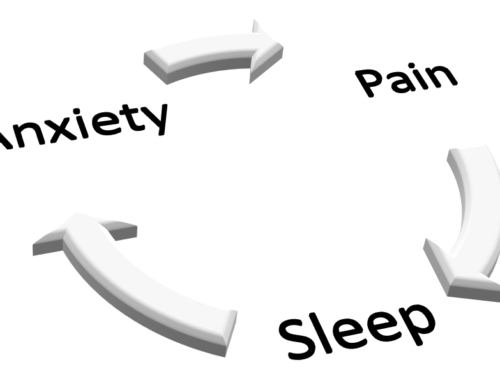
Medication reconciliation can keep you safe.
Have you heard the term ‘medication reconciliation’? Probably not, it’s an insider’s term within medicine. But it’s an important concept, and I want you to know about it. I want you to ask about it any time you find yourself going into the hospital, going to the emergency department (ED), coming out of the hospital, going into rehab, switching doctors, having any major changes in either your health or who is monitoring your medications.
The term medication reconciliation (abbreviated ‘med rec’) means taking your whole medication list and understanding, how you are taking it and when you are taking. It is about making sure that information goes with you any time you are making a transition. So ideally, at the moment you enter a hospital someone figures out exactly what you take, how you take it, and when you take it. It is awesome if you come with this information. You could carry that information with you and have it ready to share with your health team. It is a huge safety factor in your care. If they know exactly what you take, how you take it, when you take it, they will make much more informed decisions in your care. This is true in the emergency department, the hospital, moving to rehab, moving to assisted living. I applaud the pharmacists who do this well in hospitals, clinics, and other settings around the country.
If you come in with it ready, you have saved them a lot of time and effort. And, you’ve helped assure your own safety. This important information will help guide the next phase when they will make any modification depending on why you are in the health system and what your needs are at that time.
If you’re in the ED or the hospital for a particular reason, there may very well be a need for a new medication to treat the reason you’re there. It is important that any of those changes are communicated all throughout your stay within and beyond the health system.
Formulary
A little caveat that’s important is another important term to understand – formulary. There can be a number of different medicines that do the same thing. We call them medication classes, and each class could have several medications that do the same thing in the same way. Rather than carry every medication on the market, a hospital will carry a few in each category. It is possible that the one you typically take is not on their formulary. They will switch you while you are in the hospital to one that is on their formulary. The name, color, and size might not look familiar to you. Be sure to ask questions when you don’t recognize your medicine. This is not harmful; it will not put you in danger. Medicines within the same class work the same way as the one your doctor had you on at home. But, it is a source of confusion when you go home or move to another part of the health system. It’s one of the reasons this medication reconciliation process is so important.
It is critical that you know that another medication, similar to the one you take at home, is being used in the hospital. You want, when you go home, to be switched back to the medicine you came in on, the one that was prescribed by your own primary care provider.
Many, many patients have run into difficulty when they go home on the medication the hospital gave them and they continue to take the one they have at home. This is called duplication of therapy. You are getting twice the amount you need – you have the one you have at home and the on the hospital gave you that do the exact same thing. So, using blood pressure as an example, if you are taking the medicine you have at home plus the one in the same class that you got in the hospital, you could lower your blood pressure too much. You want to avoid duplication of therapy; be sure for that class of medicine you are on just one.
Be sure to ask at the hospital if you can go back on the one you were familiar with at home that does the same thing as the one you got while in the hospital.
It is important that several people know exactly the medicines you take when you go back home or get to your next destination. You are one of them, of course. It is also important that anyone involved in your care such as your spouse, child, or caregiver involved in your care; your primary care doctor; any specialists; and your pharmacist know exactly how your medications have changed while you were in the hospital.
It is important that any intermediate step before you go home, such as rehabilitation, knows your entire current medication regimen. But, it is most important that you understand exactly what to take when you get home.
Medication changes while you’re in the hospital
What if problems related to your medication led to you going to the hospital? That is very often the case. Then, the medicines that led to your admission will be stopped or changed. If the problem that took you to the hospital was something new, then it’s likely that new medicines were added to your regimen. Again, it is important that you know what changes were made, why they were made, and exactly what you should do when you get back home. Ideally, ask your questions while you’re in the hospital, but if you get home and have questions, don’t hesitate to reach out for answers.
Medication reconciliation is something we often do at Meds MASH. People get home and realize they don’t really understand what they are to do. They have a list from the hospital, a list from rehab, and their home list. They wonder if anyone has looked at all of the medicines – the old ones, the new ones, and some from other doctors. At Meds MASH we look at all of the medicines and make sure they are all safe together. We catch those duplications and clear them up with your doctors. One of the things we will do, with your permission, is get information from all of your doctors and from the hospital and pull it all together. Then, after the thorough analysis, any changes will come from your primary care doctor who is the gatekeeper and the one person responsible for all of your medicines.
Three doctors recently wrote an important article about the need for accurate medication reconciliation. And they note that this process must be thorough to be meaningful. Several partial versions have been tried, and if it isn’t complete, it’s not helpful. It’s not going to keep people safe if it is not done right.
If a thorough medication reconciliation can keep you safe and healthy, please contact us at Meds MASH at 410-472-5078 or www.medsmash.com/contact.
For further application, check out my personal blog.



